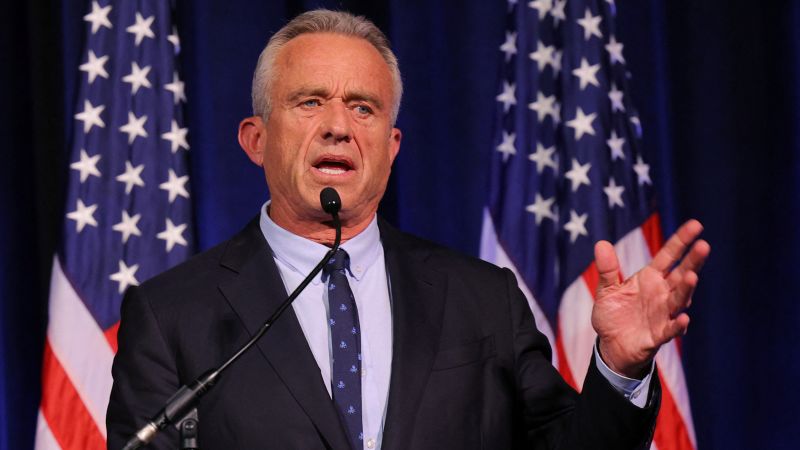In a startling turn of events, independent presidential candidate Robert F. Kennedy Jr. announced on Friday that he is ending his campaign and endorsing Republican Donald Trump. The decision marks the end of a bid that began with Kennedy running as a Democrat, leveraging one of the most storied names in American politics.
Kennedy made the announcement during a press conference, where he explained that after meeting with Trump and his aides several times, he found common ground with the former president on key issues such as border security, free speech, and ending foreign wars. “There are still many issues and approaches on which we continue to have very serious differences. But we are aligned on other key issues,” Kennedy told reporters.
Shortly after the endorsement, Kennedy joined Trump at a campaign event in Arizona, where the independent candidate received loud cheers from the crowd. Trump praised Kennedy’s candidacy, stating, “His candidacy has inspired millions and millions of Americans, raised critical issues that have been too long ignored in this country.”
The endorsement comes as Trump faces a tight race against Democratic Vice President Kamala Harris ahead of the November 5th election. While strategists are divided on whether Kennedy’s endorsement will significantly impact Trump’s campaign, the move has drawn both criticism and support across the political spectrum.
Kennedy, 70, a well-known environmental lawyer and anti-vaccine activist, began his presidential run in April 2023 as a Democrat, challenging President Joe Biden for the party’s nomination. His campaign initially gained traction among voters dissatisfied with both Biden and Trump. A November 2023 Reuters/Ipsos poll even showed Kennedy with 20% support in a three-way race against Biden and Trump after he declared his intention to run as an independent.
However, recent developments in the presidential race, including an assassination attempt on Trump and Biden’s decision to pass the campaign torch to Harris, have shifted voter interest away from Kennedy. A recent Ipsos poll showed Kennedy’s national support had dwindled to just 4%, a number that could still be meaningful in a close race but far from the influence he once wielded.
Kennedy’s decision to endorse Trump has not been without controversy. His sister, Kerry Kennedy, expressed her dismay on social media, stating that the endorsement “betrayed the family’s values.” She added, “It is a sad ending to a sad story.”
Despite the declining support, some within Trump’s camp view the endorsement as a positive development. Trump pollster Tony Fabrizio suggested that more of Kennedy’s supporters are likely to back Trump than Harris in battleground states, calling it “good news for President Trump and his campaign.”
In contrast, Democratic National Committee senior adviser Mary Beth Cahill dismissed the endorsement, remarking, “Donald Trump isn’t earning an endorsement that’s going to help build support; he’s inheriting the baggage of a failed fringe candidate. Good riddance.”
There are also reports that Kennedy’s endorsement of Trump may come with strings attached. A super PAC supporting Kennedy indicated that he is hoping for a role in a potential Trump administration.
Throughout his campaign, Kennedy positioned himself as a political outsider, often making headlines for his controversial statements and actions. These included bizarre claims of dumping a dead bear in Central Park and staging it as a bike accident, and admitting to having a “skeletons in his closet” after a former family babysitter accused him of sexual assault. Additionally, Kennedy’s campaign confirmed he had a brain parasite more than a decade ago, an admission that drew widespread ridicule.
As the political landscape continues to shift, the impact of Kennedy’s endorsement on the upcoming election remains uncertain. However, it is clear that his decision to back Trump has already added another layer of complexity to an already unpredictable race.



